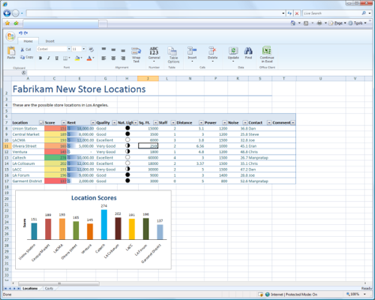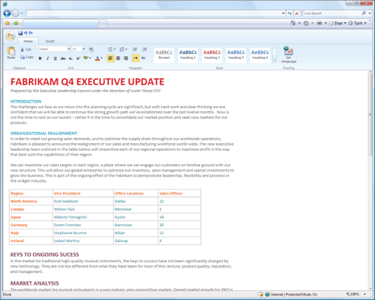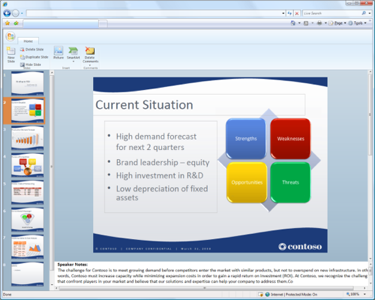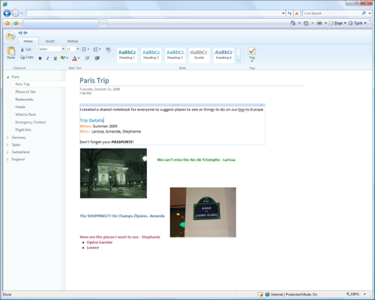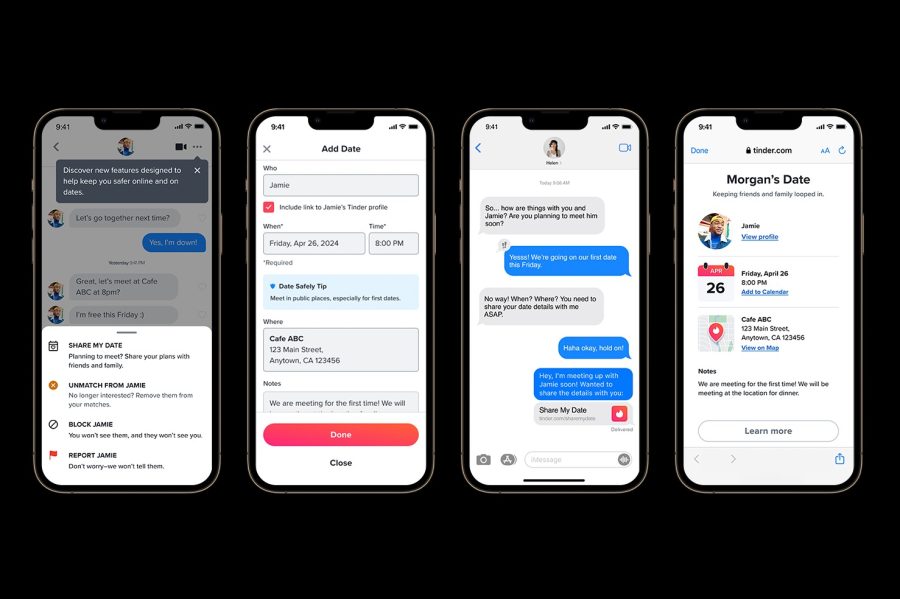Microsoft announced this morning at its PDC conference that the next release of Microsoft Office will include browser-based versions of some of its main office software products – Word, Excel, PowerPoint and OneNote. These will be “lightweight versions”, but Microsoft told us yesterday that they’ll still have rich functionality and will be comparable to Google’s suite of online office applications. The apps will enable users to create, edit and collaborate on Microsoft Office documents through the browser. The apps will work in IE, Firefox and Safari browsers (no word on whether Google Chrome will be supported). Update: Microsoft clarified in an email that these apps will use HTML and AJAX, but also Silverlight components.

Update 2: For a contrary view on use of Silverlight, see Matthew Holloway’s comment below (comment #19), in which he says that “SilverLight apps on OSX and Linux are typically second-class citizens to SilverLight on Windows.”
The online versions will share the same names as their desktop counterparts (Word, Excel, etc), although unfortunately they don’t fully escape the awkward and confusing branding that Microsoft gives to most of its Internet apps. The collective name for these apps is “Office Web Applications”. To remind you, there is also an Office Online (a separate Microsoft site where users can download templates) and an Office Live Workspace (for sharing office files between desktop and Web – our coverage).
The “Office Web applications” will be available to consumers through Office Live, a service which has both ad-funded and subscription options. Business users will be offered Office Web applications as a hosted subscription service and through existing “volume licensing agreements”. There will be a private technology preview of the Office Web applications later this year.
Last month we ran a poll asking which word processing tool you primarily use. We got over 2,600 separate votes and a resounding 49% of people still use Microsoft Word as their main word processing tool. Its open source desktop equivalent OpenOffice got 16%. Google Docs was the best placed Web Office app, with 15%.

The results showed that there is still a big place for desktop Office apps. Nevertheless, with the announcement yesterday of Microsoft Azure – a so-called cloud computing OS – Microsoft is clearly serving a growing demand for browser-based office software. We expect these apps to become more full featured over time.
